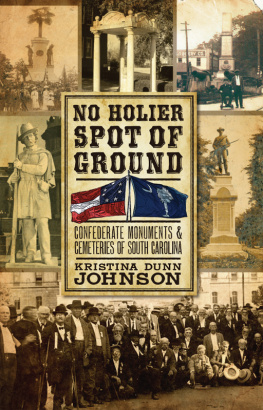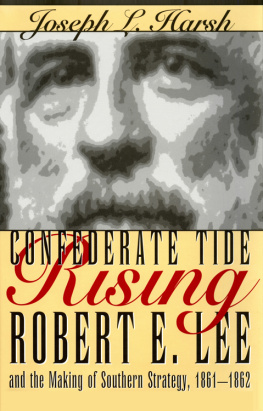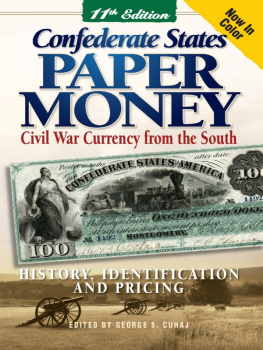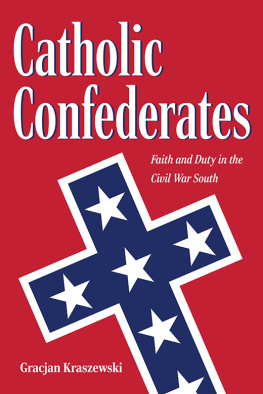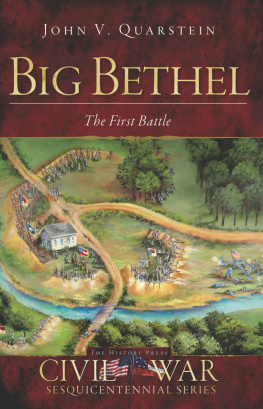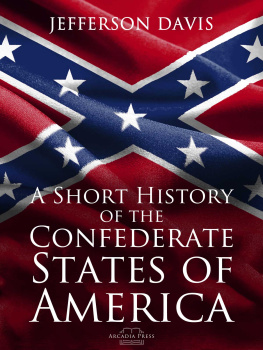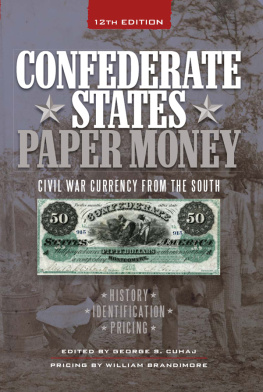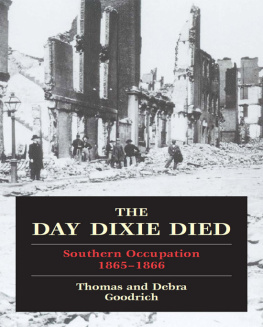F OR F RANK E. V ANDIVER
N ATIONALISM has been a perennial theme in American historiography, but surprisingly enough historians have devoted but scant attention to the analysis of Southern nationalism. Yet the brief and tragic experiment of the Confederate States of America with nationalism provides a laboratory scarcely less interesting than that provided by the American States between 1774 and 1789. Because historians are camp followers of victorious armies, most of them take for granted the triumph of the first American bid for nationalism and the failure of the Southern. Yet, on the surface at least, the Old South of the fifties and sixties boasted more and more persuasive ingredients of national unity than had the American states in 1774. For the Southand the Confederacyhad, among whites at least, far greater ethnic homogeneity than had the United States of the 1770s, for less than one percent of the population of the Confederate States was foreign born. It acknowledged a greater degree of religious unity than could be found in the original Statesfor outside Maryland and Louisiana the whole of the Southern population was not only Protestant but evangelical. It displayed a substantial economic unity, with concentration on staple crop agriculture and on slaves as a work force. By modern standards it confessed pronounced class differences, but by its own standards it could boast that it was a classless society, for all whites could claim membership in an upper class: here was a principle of social philosophy which speedily took on the authority of a moral and a religious principle and provided the South with one of the most powerful of all the forces making for national unitya common ideology. Nor, for all its inferiority in population and resources, was the Confederacy without military advantages: a territory more extensive than any which had ever been conquered in the whole of modern history; interior lines of communication; a long military tradition and superior military leaders; and a not unreasonable expectation of a foreign intervention which would rescue the South as French and Dutch intervention had rescued the new United States during the Revolutionary war. Perhaps most important of all was the elementary consideration that the South did not have to win on the field of battle in order to achieve independence, for it could afford to lose all the battles and all the campaigns and still triumph as long as it was prepared to settle simply for independence with no demands on the Union except the elementary one that it let the Sisters depart in peace.
With all these advantages, why did the South lose? That is the question to which Professor Thomas addresses himself in The Confederate Nation: 18611865, and whose answer he seeks down almost labyrithine ways. Was the failure political and constitutional; was it perhaps impossible for a government based on the principle of decentralization and state rights to fight and win a modern war? Was it military, insofar as the Confederacy never achieved unity of command, and never exploited its resources effectively? Was it economic and financialreliance on an agrarian economy which, with the success of the Union blockade, was unable to provide essential manufactures? Was it diplomaticthe failure of King Cotton to vindicate his sovereignty? Was it, in the end, moralthe inability of a crusade for slavery to rally support from those Old World states whose recognition and support was, in the end, essential to victory?
In The Confederate Nation Professor Thomas has reflected the powerful and persuasive political, cultural, and racial claims of Southern nationalism against the background of the economic, the diplomatic, and the moral, which proved less responsive to importunate demands for national independence. He has traced the evolution of that section which we know as the Old South into the Confederate States, and then the fortunes and misfortunes of the embryonic Confederate nation as it embraced defeat and yielded to disintegration. In the course of this review he provides us with a picture of an alternative American nationalisma nationalism which, with all its roots in America, had in many respects more in common with the nationalism of the Old World than with that of the New.
The Confederate Nation: 18611865 is a volume in the New American Nation series, a comprehensive, cooperative survey of the area now embraced in the United States. Other aspects of this era are set forth in David Potters Impending Crisis, Clement Eatons Growth of Southern Civilization, Russel Nyes Society and Culture in America: 18301860, and in forthcoming volumes on the Civil War, constitutional development, and the culture of the war and the postwar years.
H ENRY S TEELE C OMMAGER
R ICHARD B. M ORRIS
A T some early point in our correspondence about this book, Professor Henry Steele Commager stated that a new history of the Confederacy needs not so much new information, as new and fresh ideas. To be sure, the literature of the South as short-lived nation is extensive. Still, there is new information here. For the most part, though, I have emphasized new and fresh ideasmy own and those derived from recent research and scholarship on the Confederacy by others.
I have attempted to write a narrative interpretation. The Confederacy lived briefly; but the human drama involved all but dictates that its historian be a storyteller. The Confederate era was an extended moment during which Southerners attempted simultaneously to define themselves as a people and to act out a national identity, all the while engaged in total war for corporate survival. The momentous nature of these events and the centrality of this experience in the American and Southern past demand that its historian offer interpretations and attempt to derive the meaning of it all.
During my research, and in the organizing, writing and revising of this book, many people have given generously of their time and talents. Naturally I owe a great debt to other scholars upon whose works I have built. Many friends within the historical profession have helped with ideas and advice. I would like to thank especially Eleanor Brokenbrough of the Confederate Museum, Louis H. Manarin of the Virginia State Library, John M. Jennings and Howson Cole of the Virginia Historical Society, Richard B. Harwell of the University of Georgia Library, and the staffs of the Library of Congress, the National Archives, the Alderman Library at the University of Virginia, the University of Georgia Library, and the Southern Historical Collection in the University of North Carolina Library at Chapel Hill. I much appreciate the indulgence and advice of series editors Richard B. Morris and Henry Steele Commager, as well as the kindness of Corona Machemer at Harper & Row. Finally I thank my family and friends who got me through it with understanding and love.
E MORY M. T HOMAS
CHAPTER 1
The Social Economy of the Old South
O N an October Tuesday in 1859 an old man with long silver hair poured disconsolance into his diary; Edmund Ruffin was sixty-five years old and prepared to die. I have lived long enough, Ruffin wrote, a little more time of such unused & wearisome passage of time will make my life too long.
Behind Ruffins lament was a deep-seated sense of frustration and failure. He had not failed at the normal activities at which people fail and about which they then consume their later years fretting and worrying. Ruffin had been a highly successful Virginia planter and an esteemed agricultural scientist, he had most of the trappings of personal and vocational success, but in the one great passion of his mature life, he was frustrated. The old man had devoted the last fifteen of his sixty-five years to the dream of Southern independence. He perceived the planter civilization of the South in peril; the source of that peril was Yankee and union with Yankees. Thus he preached revolution. Ruffin was a rebel with a cause, a secular prophet, but his cause lacked a constituency, and the prophet lacked sufficient honor in his own beloved South.


